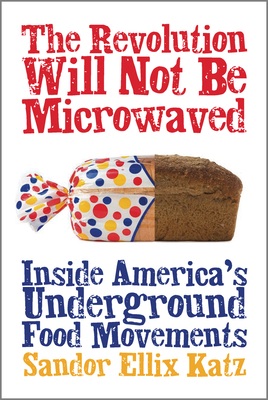I loved this book so much that the whole time I was reading it, I just wanted to find Mr. Katz and shake his hand. And then invite him over for dinner.
The bookstore had this book sitting on the shelf for about a year and no one had purchased it. Our book buyer wanted me to pull this lovely treasure from the shelf and return it to the publishers to make room for books that might sell better. I couldn't do it. Even though I had not yet read the book, I knew that with a title like this one, it had to be good. So I promised to read the book, write a review and attempt to hand-sell the crap out of it. And although my hand-selling skills are limited, I will certainly talk to anyone willing to listen about the reasons this book deserves a spot on the shelves.
This book mixes the some of the good bits of Pollan, Kingsolver, Bittman, even a bit of McKibben. The point is, you can pick up this book anywhere along your journey to food knowledge and activism. It can be a beginning, or it can be the next book in a long series of food system information. Katz touches on environmentalism, heath, the overcomplicated food system, and even throws in some recipes.
What's even better is that Katz doesn't stop short after bringing up all of the problems, he gives examples of what others are doing to solve these problems. He cites specific organizations and people who fight the system and how they are doing it. Each chapter has several pages of resources for more information on the problems and solutions. The bibliography alone is enough reason to buy this book. Getting through it will probably keep me occupied for years.
Buy it indie!

